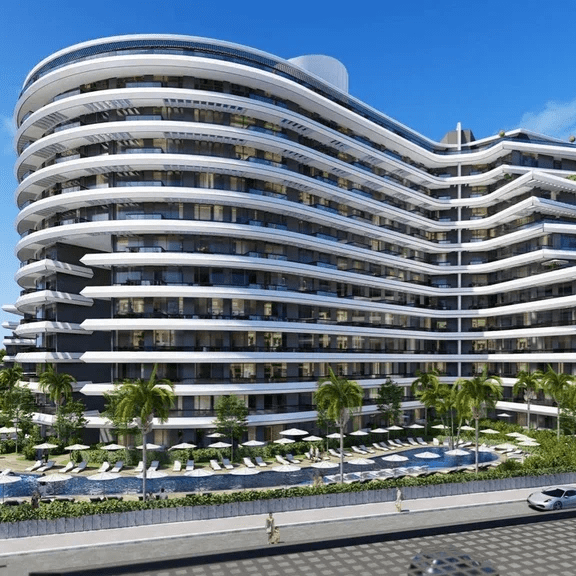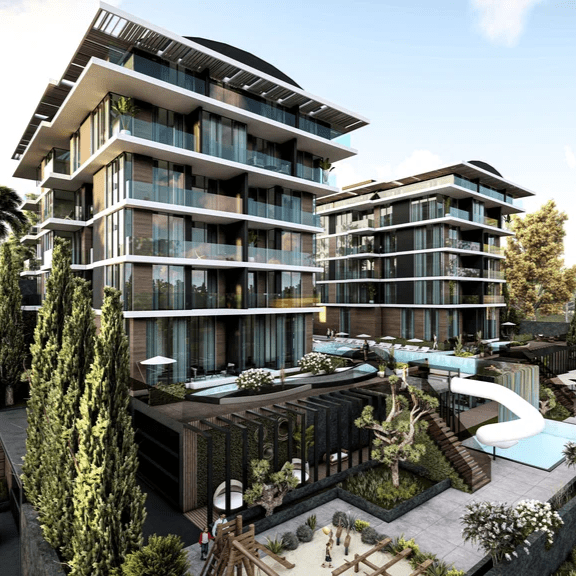Istanbul is the largest city in Turkey both in terms of size and population. The city has outlived the Roman, Byzantine, and Ottoman empires and changed its names more than once. The most famous of them is Constantinople. When the Turkish Republic was established in 1923, Istanbul lost its status as the country's capital, passing to Ankara. Nevertheless, the city remains the economic centre of Turkey, mostly due to its geographical location: the Bosporus Strait passing through the metropolis is one of the key trade arteries in the eastern hemisphere.
Istanbul is the most attractive city in Turkey for expats, especially for those looking for a high standard of living and business or investment opportunities. However, for all these advantages you will have to pay more than in other Turkish cities. Read on to learn more about the cost of living in Istanbul in 2023.
Inflation in Turkey
Turkey has suffered from extremely high inflation for the past three years. Over the last year alone, consumer prices increased by 48%. Hotel, cafe, and restaurant prices grew most of all, by 82.5%. Food got 61% more expensive and healthcare 76% more expensive.
At the beginning of September 2023, the inflation rate in the country reached a record level of 55%; over the summer, prices grew by 9.5%. It is really hard to predict the stabilisation of the economic situation in the near future; prices may rise even higher. This article contains prices for real estate, goods, and services as of September 2023. Bear in mind that these figures may have changed by the time of publication.
Real Estate
Istanbul is one of the 20 largest cities in the world and its real estate market is very extensive, full of life and diverse. The city has options for all tastes and budgets for both buying and renting.
New buildings in Turkey
Areas of Istanbul. The urban pattern of Istanbul is uneven: on both the Asian and European sides of the Bosphorus there are areas that are very different from each other, each with its own standard of living and infrastructure.
The central areas of the city, such as Beşiktaş, Beyoğlu, Kadıköy, and Sarıyer, are inhabited by tourists and businesspeople: here you can find the most luxurious and expensive flats and houses. Most of the affordable residential properties are located far from the city centre and mainly on the Asian side, with fewer tourists. Maltepe, Pendik, Ümraniye, Kartal, and other residential areas of Istanbul offer many real estate options for lower prices. Let us take a look at the cost of real estate in different areas of Istanbul.
Buying Real Estate. In the central areas of Istanbul, you can find small flats, luxurious penthouses, and even villas. For 2,200,000 TRY ($81,619), you can buy a furnished studio in Beşiktaş. You can become the owner of a luxurious six-bedroom flat overlooking the Bosphorus for 230,000,000 TRY ($8,532,954).
Istanbul is a coastal city, so you can also buy beachfront mansions here, for example, in Sarıyer, located in the northern part of the Bosphorus. Prices reach up to 1,100,000,000 TRY ($40,809,780), for a residence with more than ten rooms, several swimming pools and saunas, private parking, a tennis and basketball court.
The remote areas of Istanbul are constantly under development, and the housing supply in these areas is growing all the time. A three-bedroom flat with no furniture in a residential area of the city will cost an average of 4,000,000 TRY ($148,048). You can also find flats for less than a million: for example, a two-bedroom basement flat in the Asian part of the city for 690,000 TRY ($25,538).
Istanbul, Besiktas. Photo: piqsels.com
Rent. As with real estate for sale, the price of flat rentals varies greatly depending on the area. The average monthly rent for a furnished three-bedroom flat in a residential area of Istanbul, for example, Maltepe, is 20,000 TRY ($740). For an unfurnished one-bedroom flat in the more desirable Sarıyer you will have to pay 35,000 TRY ($1295) per month. Prices can reach up to 130,000 TRY ($4812) per month for a four-bedroom flat in central Beşiktaş.
If you are looking for the cheapest housing possible, you can find rental offers for about 3000 TRY ($111) per month.
When estimating rental costs, you have to consider the additional costs of moving, such as real estate agent commission, deposit, and prepayment. After the migrant boom in 2022, most landlords in popular areas of Istanbul require rent for several months: from four to 12, and most often six months. This helps the landlord minimise risks related to residence permits for foreigners and the possible eviction of the tenant ahead of schedule.
Also, when moving in, you will likely be charged a deposit equal to the amount of one to three months of rent. This amount is refundable and must be paid back to the tenant after moving out if the flat remains in good condition. However, the chances of getting your deposit back in Istanbul are low: they often depend on the good faith of the landlord and conditions of the contract. If you rent a flat through an intermediary, that is, a real estate agent, then you also have to pay an agent’s commission. The commission is usually equal to one or two months rent; the agent’s fee is paid by the tenant.
Finally, the tenant will have to pay for utilities and aidat, a house maintenance fee. The list of services included in the aidat varies depending on the type and class of the building. For example, in regular areas it is just the maintenance of the elevator and public areas, and the monthly charge is around 100 to 200 TRY ($3.70 to $7.40). However, for a gated residential complex with security, the amount will also include maintenance of the entire infrastructure, wages for security guards, cleaners, and other staff. In this case, the aidat can reach 2000 TRY per month ($73). At the same time, due to the constant increase in inflation, this service can get more expensive several times a year.
For example, in January 2023, the minimum wage in Turkey increased by 54.5%, and six months later, in June 2023, by another 34%. Aidat for residents of big complexes with a large number of service staff increased by the same percentage.
Photo: Ahmed (Pexels)
Food
Until 2023, the cost of food in Istanbul, both for groceries and eating out, was considered one of the lowest of all international tourist destinations. However, the situation in the city is gradually changing. The metropolis offers a variety of establishments where you can try Turkish, Italian, Japanese, American, Russian and other dishes, but prices are steadily rising both in cheap eateries and in expensive restaurants.
You’ll find the most popular international fast food franchises in Istanbul: Sbarro, McDonald's, KFC, Subway, Krispy Kreme, Starbucks, etc. A standard lunch at a Turkish McDonald's will cost 170 TRY ($6.29), while a lunch for two at a mid-range non-chain restaurant will cost about 900 TRY ($33.31).
Let us use the Starbucks index to compare local prices with prices around the world. This index is similar to the Big Mac index and compares the price of a small latte in different countries. According to the latest data included in this index in February 2023, the cheapest drink was sold in Turkey for $1.31 followed by Brazil with $1.96, Aruba with $2.22, Egypt with $2.23, and Peru with $2.49. However, these figures are already outdated for Turkey: in October 2023, a latte costs 66 TRY, that is, $2.38.
Prices in grocery stores are also rising, but the value of a shopping cart will depend on the supermarket. In Istanbul, there are chain stores of different price categories: cheap (ŞOK, A101), medium (Migros, Carrefour), and expensive (Macrocenter). The average prices for basic products in supermarkets are given in the table below:
Item | Price in TRY | Price in USD |
A loaf of bread, 500 g | 15,51 TL | $0,57 |
A bottle of water | 7 TL | $0,26 |
12 eggs | 51 TL | $1,88 |
Cheese, 1 kg | 219 TL | $8 |
Apples, 1 kg | 29 TL | $1,08 |
Beef, 1 kg | 395 TL | $14,62 |
Coke, 0.33 ml | 20 TL | $0,74 |
A bottle of wine (mid-range) | 250 TL | $9,25 |
A packet of imported cigarettes | 46 TL | $1,7 |
Photo: Igor Sporynin (Unsplash)
Communication and Gadgets
In the field of information technology, the Turkish economy is geared at domestic production and promotes its own goods within the country. This has an enormous impact not only on the price of technical devices, but also on related legislation.
Customs legislation allows the transportation of all home electronic devices across the border if their quantity does not exceed the limit: no more than one piece per traveller. Customs officers pay particular attention to the transportation of large equipment, such as monitors and TVs, as well as expensive devices, such as smartphones, laptops, etc.
Strict customs policies also affect pricing within the country. There is a law in Turkey, according to which any smartphone purchased outside the country and used on its territory will not be able to connect to the cellular network, including mobile Internet, after 120 days of use. To prevent this, you must register the device by paying tax for it. You can do this only if you have a residence permit. The tax for smartphone registration is frequently updated: over the past seven months, it was raised from 2,732 TRY ($101) in December 2022 to 20,000 TRY ($739) in July 2023. The growth is associated not only with inflation in the country, but also with the intention of the authorities to make visitors buy equipment in Turkey, where smartphones by foreign manufacturers are much more expensive than in other countries of the world. Take a look at the table below:
Item | Price in TRY | Price in USD | Price in USD when buying in the US (excluding the state tax) |
iPhone 15 Pro | 64 999 TL | $2403 | $999 |
iPhone 15 Pro Max | 76 999 TL | $2847 | $1199 |
MacBook Air 13” M1 | 32 033 TL | $1184
| $999 |
MacBook Air 13” M2 | 40 168 TL | $1485 | $1099 |
Galaxy Z Fold 5 | 64 999 TL | $2403 | $1799 |
Galaxy S23 | 33 259 TL | $1230 | $699 |
Photo: M.Emin BİLİR (Pexels)
Transportation
Istanbul has a developed transport network which includes several means of transportation: underground, marmaray, metrobus, bus, and dolmuş (minibuses).
Underground. The Istanbul underground spreads over both parts of the city, but most of the lines are concentrated on the European side: there are more stations here and you can move around this part of the city quickly and conveniently. Trains run every three to five minutes, and the waiting time is displayed on electronic screens on each platform. The underground network in the Asian part of Istanbul is much newer and less developed: there are only three lines here, although one of them goes straight to the Sabiha Gokcen International Airport.
The underground fare in September 2023 is 15 TRY with an Istanbulkart travel card. You will be able to buy it with or without citizenship or a residence permit, but in the first case, transfers between different means of transport will be cheaper.
The Istanbul transport system charges a fee for each transfer. For the first you will have to pay an additional 7.09 TRY ($0.26), for the second, 5.38 TRY ($0.20), for the third and any subsequent ones, 3.40 TRY ($0.13). This system works with both the underground and above-ground transport.
Marmaray. Marmaray is a surface rail line running through Istanbul along the Sea of Marmara. This is the only line that crosses the Bosphorus through an underwater tunnel. Marmaray was built relatively recently, and the fare is more expensive than the underground. In September 2023, it was 25 TRY for those whose Istanbulkart is not linked to a residence permit or Turkish passport. Residents with a linked transport card get a refund. To do this, you need to put your card against the terminal on the way out; part of the funds will be returned, and the cost of the trip will be recalculated depending on the number of stops.
Metrobus. Metrobus is a bus route connecting the European and Asian parts of the city. Unlike regular buses, metrobuses have a designated lane not accessible for cars. Metrobuses run more often than regular buses, but the fare is also more expensive. In September 2023, a trip on a metrobus costs from 7.09 to 14.69 TRY ($0.26 to $0.54), depending on the number of stops you pass on the way.
The metrobus is a popular way to travel across the bridge between the two parts of Istanbul; you avoid the traditional traffic jam on the bridge over the Bosphorus.
Buses. In addition to unique types of transport, there are also regular buses in the city. The bus network is best developed in the Asian part, since there are fewer underground stations there. However, during rush hour the buses are so packed that you will have to miss several buses before you are able to get in. You cannot buy a ticket from the driver, only with an Istanbulkart. Make sure that you have money on the card.
The bus fare is the same as the city underground: 15 TRY ($0.55).
You can often top up your Istanbulkart at underground stations only in cash. Holders of local bank cards can top up their balance in the bank app. Residents who have linked the transport card to their residence permit can top up or check the balance in the Istanbulkart app of the same name.
Dolmuş. The local equivalent of minibuses is an official part of Istanbul's transport network, but you cannot pay with Istanbulkart, only in cash. The dolmuş routes are fixed, but stops and boarding are allowed on request. The fare for dolmuş is the same as for the city underground: 15 TRY ($0.55).
Cars and Taxis. Istanbul has a developed road network; it is convenient to move around the city in a private car, but don’t forget about the frequent traffic jams. The average price of one litre of petrol is 35.19 TRY ($1.30).
In addition, there are many taxis in the city and you can use international apps, such as Uber or inDrive. The starting price is 19.17 TRY ($0.71) and 13.75 TRY ($0.51) for each additional kilometre.
Photo: Kader Azra Namuslu (Pexels)
Healthcare
Turkish medical care offers the same level of quality as in the EU, the UK, and the USA, but the prices for services are on average 70% lower. For example, a dental implant in Turkey costs about $1200, and a nose job will cost $3000 which is significantly cheaper than in Western countries. Many foreigners come to Istanbul specifically for inexpensive plastic surgery.
Turkish law requires foreigners to have health insurance during their stay. Most insurance companies offer international travel insurance for expats which usually covers over $30,000 in medical expenses and costs around $50 to $300. The price depends on insurance coverage and the length of stay.
The European Health Insurance Card (EHIC) is not valid in Turkey; European citizens have to buy travel insurance to visit the country. Insurance companies have started to include additional risks, such as the damage caused by earthquakes, in their extended packages.
Education
A lot of foreigners live in Istanbul and many of them bring their families to the city, so it is quite easy to find international educational institutions for different ages.
Schools. There are three types of schools in the city: public, private and international. International schools, which are intended mostly for children of expats, often provide a comprehensive education system that includes nursery, primary, middle, and high school. About 70 Istanbul international schools work according to international standards: 15 according to the CIS (Council of International School) system and 53 according to the IB (International Baccalaureate) system. Depending on the specific educational institution, the cost can vary from $5000 to $30,000 per year of study.
Universities. Foreign students can enrol in public and private universities. However, the price of tuition in the latter will be significantly higher. One year at a public higher education institution can cost between $300 and $5000. In private universities, the price range is $1000 to $30,000. Most likely, when the next academic year starts, these prices will increase.
Istanbul University. Photo: Fargoh
Entertainment
Istanbul offers residents a wide variety of entertainment options. The city has many large shopping and entertainment centres where you can shop in brand stores, have a snack at the food courts, go to the cinema or play arcade machines.
In addition, Istanbul often hosts cultural events, concerts of local and international stars, and theatrical performances. In a city with such a rich history, you cannot help visiting museums, local landmarks, and cultural centres. Take a look at prices for various types of leisure activities:
Item | Price in TRY | Price in USD |
A ticket to the cinema | 150 TL | $5,55 |
A ticket to a museum | 300 TL | $11,1 |
A ticket to a concert of a foreign artist (standing area) | 900 TL | $33,31 |
Rent of a personal tourist boat for three to four hours | 9500 TL | $350 |
Dolmabahce Palace. Photo: Emir Anık (Pexels)
Other Goods and Services
Below are prices for some goods and services not mentioned above. Amounts have been converted to USD at September 2023 exchange rates.
Item | Price in TRY | Price in USD |
Private nursery school (1 month) | 10 000 TL | $400 |
Men’s haircut | 170 TL | $6 |
One pair of jeans by an international brand | 1200 TL | $43 |
Fitness club, monthly fee | 970 TL | $36 |
Home Internet for one month (from 60 mbps) | 255 TL | $9 |
A small European car | 1 250 000 TL | $46 270 |
In a Nutshell
According to the Numbeo index, the cost of living in Istanbul for a family of four is 52,806 TRY ($1954.67) per month. Bear in mind that this amount does not include rent, so you can add another 20,000 TRY for renting a house and about 10% of this amount for aidat. The total amount is about 75,000 TRY ($2776) per month.
Unfortunately, it is extremely difficult to predict how much living in Istanbul will cost in the near future: inflation makes prices change every few months. Just a year ago, the cost of goods and services in the city was several times lower than the prices in European capitals, but by the fall of 2023 it came close to the level of world metropolises. However, the rapid rise in prices does not affect the abundance of opportunities that the largest city in Turkey provides to its residents and guests. This is the most developed location in the country; there are many opportunities for education, business, and entertainment. The economic situation in Turkey will eventually stabilise, and then the advantages of Istanbul will become even more obvious.
Cover photo: piqsels.com







